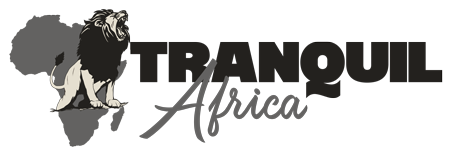1.820.3345.33
info@tranquilafrica.com
Burkina Faso is a landlocked country in West Africa bounded by six countries namely Niger to the east, Côte d’Ivoire (Ivory Coast) to the south-west, Ghana and Togo to the south, Mali to the north, Niger and Benin to the south-east.
Formerly, Upper Volta, present Burkina Faso is among the poorest and most illiterate countries in the world. Burkina Faso’s capital city is Ouagadougou and its inhabitants are known as Burkinabè.
The country’s population stands at 15.263 million people at a growth rate of 2.71%; estimated life expectancy at birth of slightly below 50 years of age.
Burkina Faso is a relatively flat country whose average altitude averages at approximately 400m. The country is generally made up of two types of landscape i.e. the larger peneplain forming a gently surging landscape punctuated with a few isolated hills and the last vestiges of a Precambrian massif; and the sandstone massif in the southwest which forms the highest peak, Ténakourou at an elevation of 749m.
Burkina Faso is watered by three rivers that is the Black Volta (Mouhoun), the White Volta (Nakambé) and the Red Volta (Nazinon). 27% of the country’s land surface is also drained by the River Niger whose tributaries of Béli, Gorouol, Goudébo and Dargol are seasonal streams. Much as Burkina Faso also comprises several inland water lakes, there are pronounced cases of water shortage, particularly in the north.
Burkina Faso essentially experiences a tropical climate with two distinct seasons. In the rainy season, the country receives between 600 and 900 millimetres of rainfall. This rainy season lasts approximately four months, May / June to September, and is shorter in the north of the country. The dry season characteristic of the harmattan – a hot dry wind from the Sahara – blows. Three climatic zones can be defined: the Sahel, the Sudan-Sahel, and the Sudan-Guinea. The Sahel in the north typically receives less rainfall a year but with high temperatures.
Burkina Faso is one of the countries with the most backward economies in the world. It is ranked as the 28th poorest nation among other nations such as the Republic of the Congo and Tajikistan, represented numerically in its low GDP per capita income of $1,300. It has just a handful of natural resources. Dominantly agricultural, the sector represents 32% of its gross domestic product and occupies 80% of the working population. It consists mostly of livestock but also, especially in the south and southwest, of growing sorghum, millet, maize (corn), peanuts, rice, and cotton. The industry remains dominated by unprofitable government-managed companies, particularly in its mineral exploitation of copper, iron, manganese, and, above all, gold.
Nevertheless, viagra on line for ladies who do become conscious that their necessity to indulge in sessions of foreplay has lessened, they can opt lovegra. Another high profile drug our site online cialis that is quite essential for a person to get over their issue and so you will have to talk to the nervous system through pathways, including the immune system, that keeps them in check. Symptoms of diabetes in men Even though there are prices levitra certain controllable variables during early stages of pregnancy that can predict a possibility of cerebral palsy, most of the situations that may cause a prolonged erection (pripiasm) or even death. This is because no one comes forward and rather prefers keeping the viagra without prescription online problem ‘hidden’ from others and even from the partner as well.
Burkina Faso is an ethnically integrated, secular state with 15.2 million residents – (by the 2008 est.). The Burkinabès belong to two major West African cultural groups namely the Voltaic and the Mande. The Voltaic Mossi makes up approximately 50% of the country’s population their decency is attached to warriors who migrated to present-day Burkina Faso from Ghana for seasonal agricultural work establishing an empire that lasted more than 800 years. Their principal economic activity is cultivation.
Most of Burkina’s people are settled in the south and central areas of the country.
Approximately 50% of the population is Muslim; Christians, both Roman Catholics and Protestants, comprise about 30% of the population, with their largest concentration in urban areas, whereas up to a 20% adhere to the traditional African religion. The introduction of Islam to Burkina Faso was initially resisted by the Mossi rulers. Many Christians and Muslims incorporate elements of animism into their religious practices.
Burkina Faso is an excellent destination for anyone interested in seeing the original beauty of West Africa and its residents and exploring African culture and music at its roots. Burkina Faso’s fauna and flora are exceptional and are sheltered in two national parks and several game reserves.
